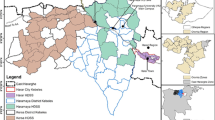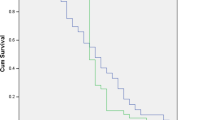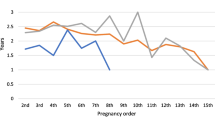Abstracts
Background:
During the Covid-19 pandemic, reproductive health of women was disproportionately affected due to difficult access to safe abortion and contraceptive services. This study aims to assess the impact of the Covid-19 pandemic on the prevalence of MTP cases and to find out the clinicodemographic profiles of women undergoing MTP during three Covid-waves in different hospitals-Government and private sectors in India.
Methods:
This retrospective multicentric cohort study was conducted during three Covid-19 pandemic waves. The records were retrieved from the centers’ medical record section and the MTP register from the Department of Obstetrics and Gynaecology.
Results:
On an average, 1.1 women/day underwent MTP during covid waves compared to 1.9 women/day during the pre-covid 2019. The first Covid wave’s average MTP/day was very low (0.71) compared to the third (2.88) and second wave (1.12), respectively. These differences were statistically significant (p<0.0001). The most common indication for MTP was contraceptive failure 245(50.9%), followed by eugenic/congenital anomalies 88(18.9%). A total of 244 cases (50.6%) reported for MTP ≤ seven weeks and 114(23.6%) presented between 7 and 12 weeks. More than half (54%) of the women underwent surgical methods for abortion as the unavailability of medical abortion (MA) drugs. IUCD and sterilization were severely affected during the first and second Covid waves.
Conclusion:
Safe abortions are essential services for reproductive-age women. With the uncertainty of future Covid-like an emergency, we should strengthen our telemedicine network so that women can reach out early and MMA can be initiated to reduce the number of surgical abortions and unwanted pregnancies.
Similar content being viewed by others
References
Bapat K, Palo S. Contraception and MTP in COVID times. Apollo Med. 2020;17:194–6.
The Medical Termination of Pregnancy Act 1971. Ministry of Health and Family Welfare India. Available at https://www.indiacode.nic.in/bitstream/123456789/6832/1/mtp-act-1971.pdf. Accessed on 22nd December 2022.
Say L, Chou D, Gemmill A, et al. Global causes of maternal death: a WHO systematic analysis. Lancet Glob Health. 2014;2(6):e323-333. https://doi.org/10.1016/S2214-109X(14)70227-X.
United Nations (2015) Resolution adopted by the General Assembly on 25th September 2015, transforming our world: the 2030 Agenda for Sustainable Development Goals Available at https://sdgs.un.org/2030agenda Accessed on 24th December 2022.
Gandhi A, Ganatra A, Tank P. FOGSI is a good clinical practice recommendation on pregnancy with COVID-19 infection. Version. 2020;1:28.
Singh S, Shekar C, Acharya R, et al. The incidence of abortion and unintended pregnancy in India, 2015. The Lancet. 2018;6:e111–20. https://doi.org/10.1016/S2214-109X(17)30453-9.
Chandrasekaran S, Chandrashekar VS, Dalvie S, et al. The case for the use of telehealth for abortion in India. Sex Reprod Health Matters. 2021;29(2):1920566. https://doi.org/10.1080/26410397.2021.1920566.
Impact of COVID-19 on India’s Family Planning Program Available at https://www.frhsi.org.in/images/impact-of-covid-19-on-indias-family-planning-program-policy-brief.pdf. Accessed on 22nd December 2022.
Compromised Abortion Access due to COVID-19: A model to determine the impact of COVID-19 on women’s access to abortion. Available at https://www.ipasdevelopmentfoundation.org/wpuploads/2021/10/59202006092650.pdf- content/ Accessed on 22nd December 2022
CG-DL-E-26032021–226130 Extraordinary Part II, Section 1, The Medical Termination of Pregnancy (Amendment) Act, 2021, No. 8 of 2021 (PDF). The Gazette of India. Government of India. 2021. 1–3. Available at https://egazette.nic.in/WriteReadData/2021/226130.pdf Accessed on 2022
Sarojini VL. A review of medical termination of pregnancy profile in a tertiary care center. Int J Reprod Contracept Obstet Gynecol. 2017;6(8):3332–7. https://doi.org/10.18203/2320-1770.ijrcog20173260.
Dasari P, Aggrawal P. Prenatal diagnosis of congenital fetal malformations medically terminated: a retrospective analysis. New Indian J OBGYN. 2021;8(1):62–8. https://doi.org/10.21276/obgyn.2021.8.1.13.
Ministry of Health and Family Welfare. Guidelines for provision of Family Planning services during and post COVID-19 Pandemic India: MoHFW, Govt. of India, 2021. Available at https://www.mohfw.gov.in/pdf/FinalguidelineProvisionofFPServicesduringandpostPandemic3converted.pdf Accessed on 24th December 2022.
Agarwal P, Dasari P. Clinical profile of women seeking medical termination of pregnancy at a tertiary care institute South India. Int J Reprod Contracept Obstet Gynecol. 2021;10:1580–6. https://doi.org/10.18203/2320-1770.ijrcog20211140.
Funding
No funding source.
Author information
Authors and Affiliations
Corresponding author
Ethics declarations
Conflict of interest
The authors declare no conflict of interest in this manuscript.
Ethical approval
Ethical approval was obtained from the Jawaharlal Institute of Postgraduate Medical Education and Research (JIPMER) scientific advisory committee (JSAC) and Institutional Ethical Committee (IEC No.-JIP/IECOS/2022/303) before the commencement of the study.
Ethical standards and research involving human and animal participants
The study involving human participants followed the ethical standards of the institute’s ethical and research committee and the 1964 Helsinki Declaration and its later amendments.
Additional information
Publisher's Note
Springer Nature remains neutral with regard to jurisdictional claims in published maps and institutional affiliations.
Richa Sharma: Professor, MS, MNAMS, FICOG, FICMCH, CIMS, FMAS; Pratima Agarwal: Chief Medical Officer, DNB, DGO, MNAMS, FICOG; Vaishali Jain: Senior Consultant & HOD, MD, FICOG; Haritha Sagili: Professor, MD, MD, FRCOG, MFSRH; Sonali Sarkar: Professor, MD; Anuradha Panda: Senior Consultant, MD, DGO, FICOG; Kruti Deliwala: Associate Professor, MD, DGO, FICOG; Krupa Shah: Associate Professor, MD.
Rights and permissions
Springer Nature or its licensor (e.g. a society or other partner) holds exclusive rights to this article under a publishing agreement with the author(s) or other rightsholder(s); author self-archiving of the accepted manuscript version of this article is solely governed by the terms of such publishing agreement and applicable law.
About this article
Cite this article
Sharma, R., Agarwal, P., Jain, V. et al. Impact of the Covid-19 Pandemic on the Prevalence of MTP Cases and Their Clinicodemographic Profile in India: A Retrospective Multicentric Study. J Obstet Gynecol India 73, 477–487 (2023). https://doi.org/10.1007/s13224-023-01838-9
Received:
Accepted:
Published:
Issue Date:
DOI: https://doi.org/10.1007/s13224-023-01838-9




